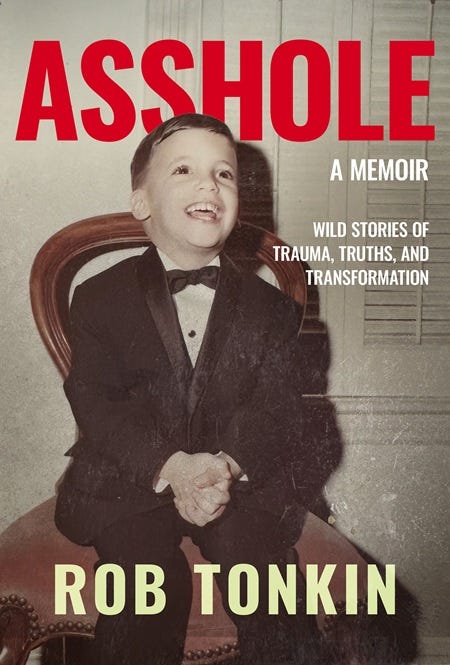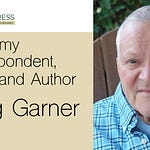Why do people write memoirs?
It’s a question we’ve explored with many authors and the answers are never quite the same. For some, it’s about legacy, passing down stories to future generations. For others, it’s about unpacking trauma, making sense of life’s hardest moments. Some write for pure entertainment, others to settle unfinished business with themselves.
Recently, we sat down with Rob Tonkin, author of the boldly titled Asshole: A Memoir, and his answer struck a deeper chord. For Rob, writing wasn’t just about telling a story; it was about reclaiming his story and rewriting the narrative he’d been living.
From Unfiltered Reflection to Radical Honesty
Rob doesn’t shy away from the title. In fact, he embraces it. Why Asshole? Because, as Rob says, it wasn’t just about how others saw him… it was about how he had come to see himself.
His story unfolds from early childhood neglect and career encounters with difficult personalities including moments of abuse to an unflinching realization that he himself had become part of that cycle. As he puts it, “I was definitely that guy for people who worked for me.”
But Rob’s book is more than an airing of grievances or a highlight reel of bad behavior. It’s a raw, often funny, ultimately redemptive account of self-awareness and growth. A story of realizing your own flaws, facing them head-on, and deciding to write a better next chapter.
The Reluctant Memoirist
Like many of our favorite authors, Rob didn’t plan to write a memoir. It started in bits and pieces notes to himself, reflections in therapy, emails to friends. His early writing days came from crafting catchy one-liners as a radio DJ and condensed talking points in corporate presentations.
But as friends read his raw reflections, one thing kept coming back: “You need to write this book.”
And so he did. Slowly. Painfully. Draft after draft. Three and a half years of wrestling with the question every author faces: Is this done?
His breakthrough moment came with advice from his sister, a professional artist: “Nothing is ever totally finished. You just decide when to stop.” And with that, Rob hit send.
Storytelling That Doesn’t Stop at the Last Page
Rob’s writing journey didn’t end with the book. Like many modern authors, he took to Substack, launching his weekly newsletter Opinions Matter, where he shares everything from media reviews to random curiosities and reflections on life after Asshole.
It’s a reminder that writing doesn’t end with the finished book. It’s an ongoing conversation about showing up, being honest, stirring things up when needed, and making people laugh or think in ways they didn’t expect.
Why You Should Care
Rob’s story is personal, but it’s also universal. We’ve all had chapters we’d rather not re-read. We’ve all been affected by the actions of others, and at times, by our own less-than-best moments. What Rob reminds us is that owning your story can be the first step in changing it.
For readers, his memoir offers entertainment, brutal honesty, and more than a few laugh-out-loud lines. For aspiring writers, it’s a blueprint on writing without filters and daring to tell the truth even when it’s uncomfortable.
For anyone feeling stuck in a life story they didn’t sign up for? It’s a nudge that it’s never too late to rewrite your own narrative.
You can find Asshole: A Memoir on Amazon and Barnes & Noble.
And catch Rob’s weekly Opinions Matter newsletter on Substack at RobTonkin.com.
If you would like to publish your book or your audiobook (or are just dreaming about it), let the MunnAvenuePress.com team help make your dream a reality.
Happy Writing! Charlie Levin, Publisher & Founder
Want more unfiltered author journeys and publishing wisdom? Subscribe below for weekly insights from the Munn Avenue Muse.












